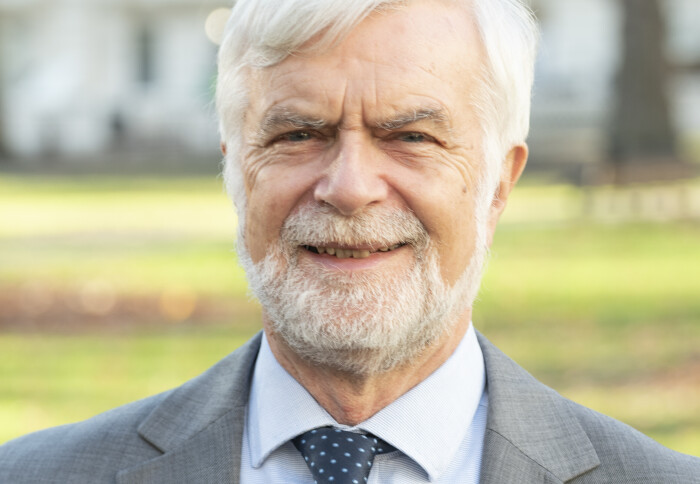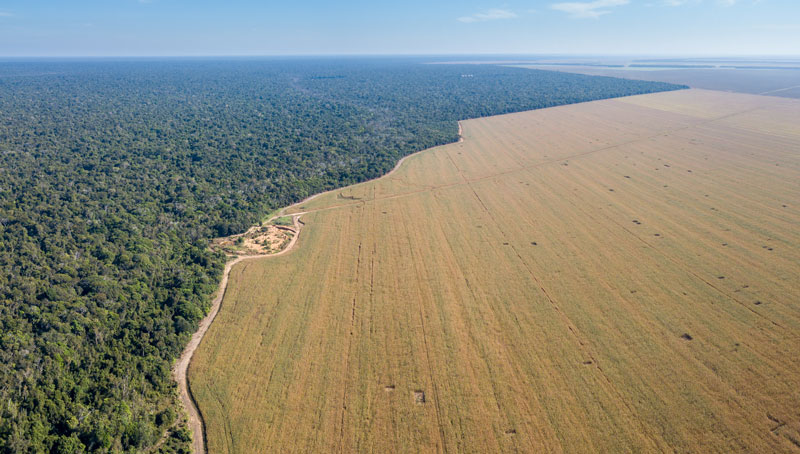Professor Jim Skea, Professor in Sustainable Vitality at Imperial, has been elected as the following Chair of the Intergovernmental Panel on Local weather Change.
* Replace 26 July 2023: Professor Skea was elected as the following Chair *
Professor Jim Skea, from the Centre for Environmental Coverage at Imperial, is considered one of 4 candidates nominated to be the Chair of the Intergovernmental Panel on Local weather Change (IPCC) for its Seventh Evaluation Cycle.
The IPCC Chair is accountable for main and coordinating the work of the IPCC, the UN scientific physique that assesses local weather change science, impacts, vulnerabilities and choices for mitigation and adaptation.
With the Vice-Chairs and different Bureau members, the Chair’s function is essential in offering steering, oversight and strategic course to the organisation. Scheduled to happen in Nairobi, Kenya, the IPCC will convene to elect its new Bureau from 25 to twenty-eight July.
There from the start
Professor Skea has nearly thirty years of expertise contributing to the IPCC. He has been concerned within the IPCC’s work since 1994, throughout its Second Evaluation Cycle when he was a coordinating lead creator for a chapter on the impacts of local weather change on vitality, business and transportation.
After taking over a smaller function within the Third Evaluation Cycle, Professor Skea then returned to the IPCC to be the Vice Chair of Working Group III for the IPCC’s Fifth Evaluation Report, and was then elected to be the Co-Chair of Working Group III within the following sixth cycle.
Professor Jim Skea is the Chair of Sustainable Vitality on the Centre for Environmental Coverage.
Professor Skea sat on the UK’s Committee on Local weather Change for 11 years from the time it was based in 2008, and performed a essential function in setting its preliminary goal to scale back the UK’s greenhouse gasoline emissions by at the very least 80 per cent in opposition to 1990 ranges by 2050.
He stepped down from the Committee in 2018 and has since chaired the Simply Transition Fee in Scotland.
“I’ve completely at all times labored in analysis settings which have been interdisciplinary, together with linkages with social sciences and economics, in addition to with the pure sciences,” Professor Skea stated.
Having graduated from the College of Edinburgh with a level in Mathematical Physics, Professor Jim Skea began his profession researching energy-related points on the College of Cambridge.
He grew to become concerned in local weather analysis when he started analysing the influence of projected local weather change on the UK’s vitality sector within the early 90s.
“The primary time I heard about local weather change in a critical means was about 1987, which was simply earlier than IPCC was created. The science was very clearly starting to emerge however it wasn’t an absolute slam dunk,” he stated, “Local weather warming has been a dominant theme [in my research] for the reason that late Nineteen Eighties.”
Professor Skea grew to become the Analysis Director of the UK Vitality Analysis Centre, then hosted at Imperial School London, in 2004. He was then appointed as a Professor in Sustainable Vitality at Imperial in 2009.
Range within the IPCC
This 12 months, the UK Authorities is backing Professor Skea’s nomination for IPCC Chair. His candidacy centres round selling regional and gender variety in IPCC participation and actions, constructing interdisciplinary bridges throughout the IPCC and different worldwide our bodies, in addition to making certain that coverage and decision-makers have entry to the perfect accessible and most related science to make an actual influence.
“My central declare is concerning the sensible facet of the inclusivity, scientific integration and coverage relevance. I do know IPCC’s difficult decision-making processes effectively sufficient to have the ability to advance the agenda in every of those areas,” Professor Skea stated.
Professor Skea has pushed programmes to extend creator variety previously. One initiative he pushed in Working Group III within the Sixth Evaluation Cycle, with assist from the UK Authorities, was an open competitors for younger developing-country scientists to behave as chapter scientists for the person chapters inside its report.
The competitors helped these early-career researchers to inject themselves into worldwide networks, constructing capability for management in future IPCC cycles.
Nevertheless, Professor Skea stated there’s extra work to be finished in creating networks and teams for youthful scientists inside the IPCC that enable them to mutually assist one another and their work.
The IPCC produced a Particular Report on 1.5°C. Imperial School London hosted the European Launch of the report in 2018. Professor Jim Skea mentioned the report on the launch, and is seated second from the left on this panel.
Inclusivity for gender is a very difficult however urgent difficulty to unravel, Professor Skea stated. “If we simply have a look at the nominations for the IPCC Bureau, we seem to have hit a glass ceiling at about 30 per cent feminine nominations. And it is true with authors as effectively, we get 30 per cent nominations of feminine authors,” he stated.
Since it’s nations that make nominations, Professor Skea emphasised the necessity to work with nations to influence them to place ahead extra balanced slates of nominations.
Maximising coverage influence at a essential time
Professor Skea has expertise in feeding scientific insights into coverage processes, each nationally and internationally, as a founding member of the UK Local weather Change Committee, Chair of Scotland’s Simply Transition Fee, and as a world professional offering technical enter to UN local weather negotiations.
“Once we have been producing the Abstract for Policymakers for Working Group III, we have been continually telling the authors to attempt to say issues which might be helpful to policymakers on a Monday morning, and provides much less prominence to summary ideas,” Professor Skea stated.
“We have been continually telling the authors to attempt to say issues which might be helpful to policymakers on a Monday morning…” Professor Jim Skea Centre for Environmental Coverage
There’s a push to have shorter summaries, however that is tough, he stated, “as a result of the shorter you make issues, the extra that means you pack into each phrase and sentence”. Having extra loaded statements might make it more durable for the IPCC to succeed in consensus on the approval stage of every report.
The publication of stories additionally struggles to be well timed. An enormous query that has emerged throughout his marketing campaign is what outputs IPCC can ship by 2028, the 12 months of the second international stocktake beneath the Paris Settlement.
“I feel the probabilities of producing the total Working Group stories by then are gone due to delays within the Sixth Evaluation Cycle,” he stated, however he hopes for alternate options akin to Particular Stories, akin to these produced within the final cycle, or Technical Stories.
The IPCC produced Particular Stories on international warming of 1.5°C, land use in addition to oceans and the cryosphere throughout its Sixth Cycle.
Nevertheless, he identified that it took 4 years after it was accredited for the Particular Report on 1.5°C warming to be revealed in printed type and translated into official UN languages.
Professor Skea has co-chaired a gaggle that developed procedures that may enable the IPCC to publish printed and translated variations extra rapidly.
As a part of addressing these challenges, Professor Skea stated that it is very important hyperlink the IPCC with different worldwide our bodies, such because the UNFCCC, to make sure well timed supply of significance scientific info.
His plans, if elected, additionally embrace partaking with decision-makers at regional, nationwide, and sub-national ranges by bespoke outreach, together with regionally centered seminars and webinars.
Classes learnt and the way forward for the IPCC
Working Group III’s Sixth Cycle Evaluation Report was the primary to commit a complete chapter to human behaviour and consumption.
Professor Skea stated that lots of the levers for change are already accessible however the scope and ambition of them must be elevated. These might embrace, alongside carbon pricing, rules and command-and-control insurance policies, in addition to softer nudge insurance policies that affect private consumption behaviour
Carbon seize and storage is a analysis space at Imperial. This photograph exhibits limestone derived sorbents for CO2 seize within the Imperial Centre for Carbon Seize and Storage (IC4S) lab.
One other key takeaway from his group’s report is the problem of carbon removing. Professor Skea stated: “You may’t get to web zero with out taking some carbon dioxide out of the environment as a result of there are going to be some unavoidable emissions.”
“Previously there was some denial about CO2 removing and a perception that you possibly can get to web zero with renewables and effectivity alone, you possibly can’t,” he stated.
The Sixth Cycle Evaluation Report paves the way in which for future evaluations of CO2 removing strategies, together with pure removals in addition to engineered options.
“One of many issues that we have been very eager to stress is that human beings have company over their very own future…” Professor Jim Skea Centre for Environmental Coverage
Chatting with nation representatives, Professor Skea additionally stated that attribution of climate and local weather occasions is a key concern, particularly amongst small island growing states. “I feel assessing the science related for losses and damages might be an enormous difficulty for IPCC to handle,” he stated.
Regardless of future challenges, Professor Skea calls himself “genetically optimistic”: “I feel there’s a threat of the IPCC spreading a message of despair and gloom….”
“One of many issues that we have been very eager to stress is that human beings have company over their very own future: there are issues that may be finished on each the difference facet and the mitigation facet in mild of the large challenges,” he stated.
IPCC Bureau elections will happen between 25 and 28 July. To debate the scientific and governance challenges that the IPCC must sort out within the subsequent Evaluation Cycle, Professor Skea sat down with Ms Alyssa Gilbert, Director of Innovation on the Grantham Institute – Local weather Change and the Setting:


